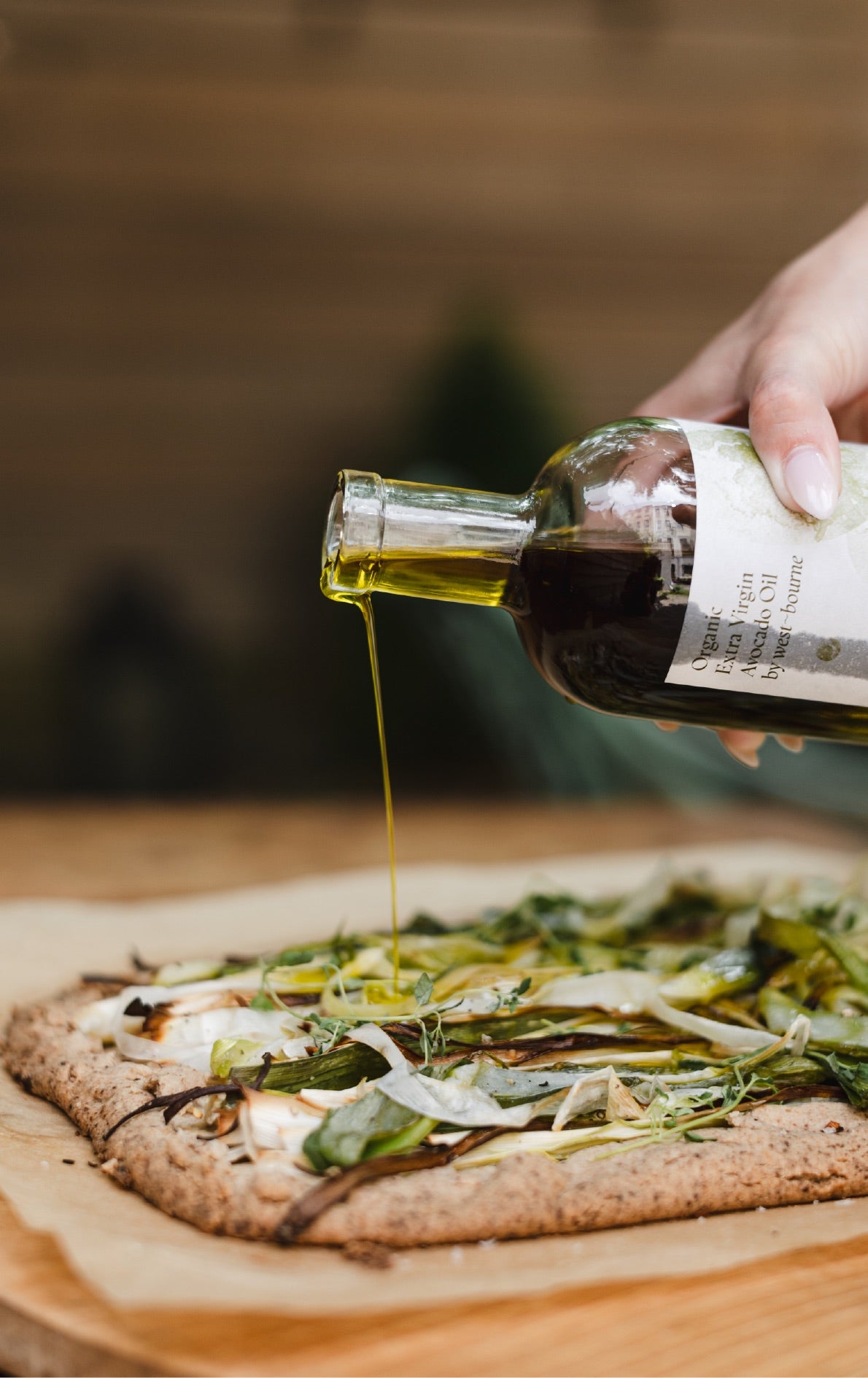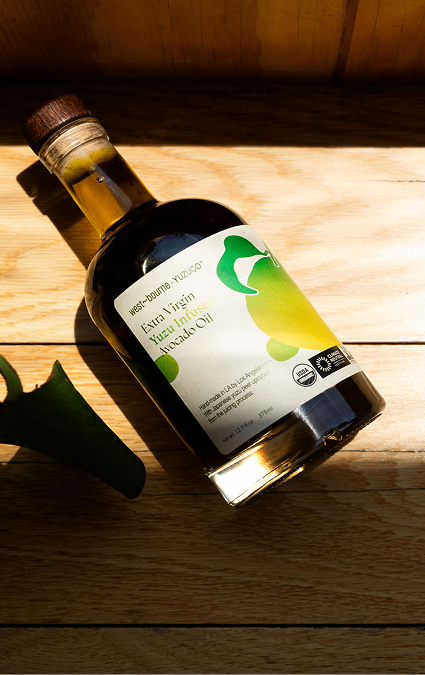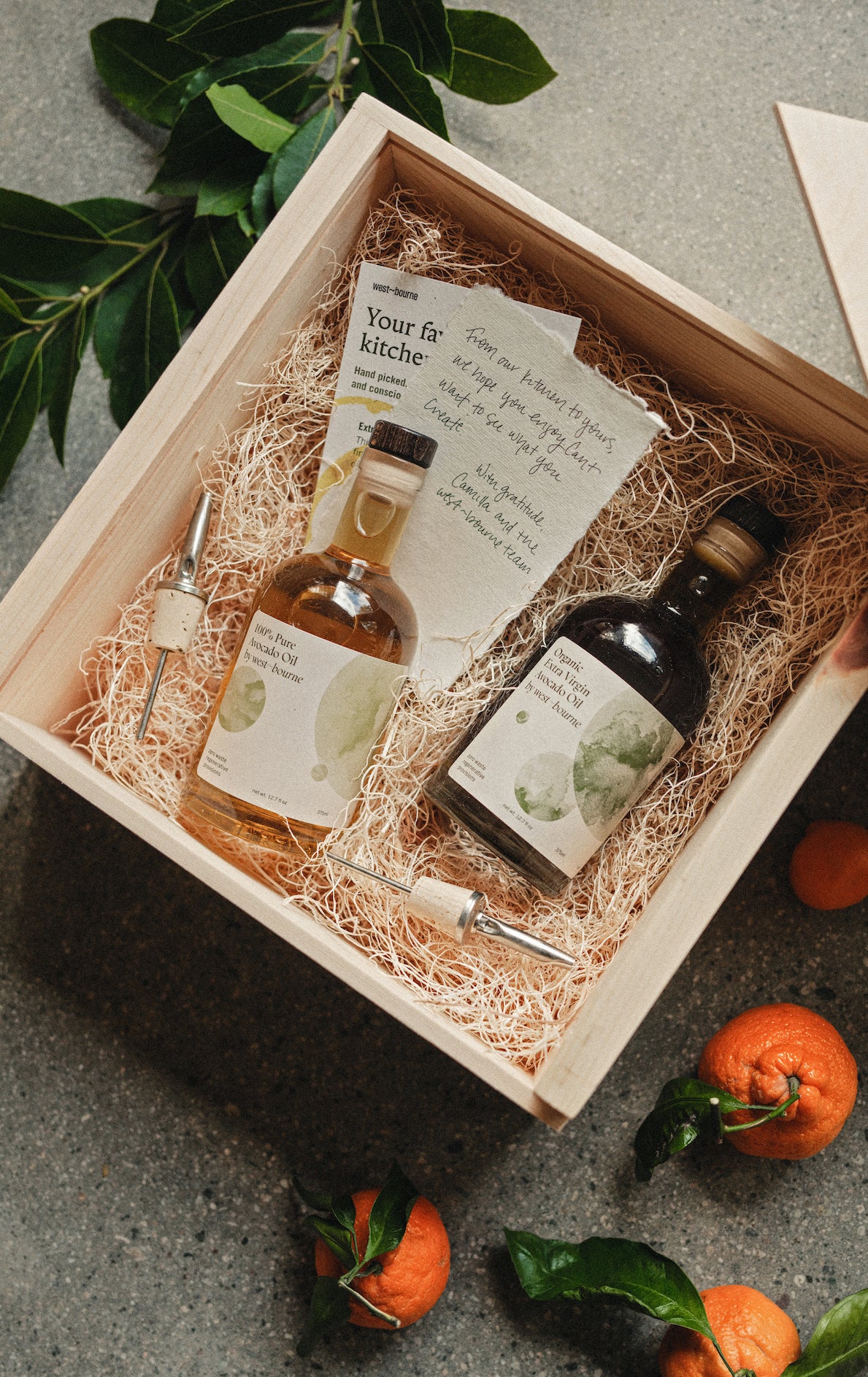The Main Meal, October 2023
with Evan Marks, Founder + Executive Director of The Ecology Center

Tell us a little bit about yourself and how you became the founder of The Ecology Center.
Growing up in Southern California (Newport Beach), I was passionate about surfing from a very early age. As a teenager, my eyes saw humans' real negative impact on the environment, with agriculture at the center of that impact on our oceans and our environment. My kind-of hippie, self-reliant sensibilities and Agroecology degree led me to Santa Cruz, where I was a farmer at Camp Joy, living my best life. There, I learned a lot about utilizing food to bring back culture and create harmony with the community and the planet. I took those learnings on the road to Latin America for about seven years, where I had the privilege of teaching permaculture design courses and designing all sorts of incredible human settlements (ecovillages, large thousand-acre projects, working farms, backyards, and a boutique hotel), all built in harmony with nature and one another. From there, I went to West Africa while working with the USAID to design farms similar to those I did in Costa Rica.
At that point, I looked deep into my work and where I wanted to be and chose to return to Orange County to put that depth of purpose to work in a community that needed it. When I got back, I found this empty farmhouse in a dirt lot; it was providence. I set out on a mission to transform one of the oldest agricultural properties in Orange County to be a role model for the future. We started fairly, humbly, with the idea of creating a cultural center and putting the pieces back together through hands-on workshops, farm dinners, field trips, and backyard orientations. For ten years, we had one acre, and five years ago, we took on 28 acres; it's been really special to see what happens when you put an invitation to the community to participate in something bigger than themselves. I showed up on a dirt lot and started planting and watering seeds with people, and it's evolved into what it is today.
Your background is incredibly impressive. Having worked in Indigenous and traditional agricultural systems around the world, in what ways do you implement farming practices that have withstood the test of time at TEC?
My journeys have taught me a lot. I’ve worked with various indigenous communities in Peru, Mexico, Ecuador, Nigeria, and Ghana. At the macro level, the architectural side of the farm design is all indigenous wisdom and traditional ecological knowledge, which means that we team up with nature and create a healthy ecosystem as quickly as possible. We’ve created an agroforestry or alley-cropping system with trees and spacing. The trees are lined up, North to South, so they don't shade the spacing, and the small fields can create a healthy ecosystem. Our ecology is also based on diversity – we grow 200 different ingredients – all of those ingredients go directly to the community, not wholesale. This diversity helps the ecology, the economy, and the equity of our farmers who care for the land, and those in our community need access to these ingredients.


Our team was amazed to learn that you transformed a farmhouse and lot into the beautiful, bountiful 28-acre Regenerative Organic Certified™ farm it is today. What are some regenerative farming practices that allowed you to focus on the long-term health of the land rather than short-term profits?
There's a healthy tension here between the ecology and the economy. While we have a nonprofit and utilize philanthropy to help subsidize a significant amount of our efforts here, like new infrastructure or scholarship programs, our mission is to create a model of agriculture that is hyper-ecological but also financially self-sufficient. We try to find that sweet spot where we can steward the people through living wages and steward the soil through methodologies like planting cover crops, creating awareness of our crop rotation, diversity, compost applications, tillage, and water conservation.
It’s all a journey, and there's no destination here. Regenerative agriculture is an art form. It’s not new, but rather about traditional ecological knowledge. It’s about stewardship and family farmers, indigenous or otherwise. We’re reminded, with humility, that we're doing everything we can to put the pieces back together. What we do here is about culture—an important word at the very heart of the word agriculture. We're caring for the village, stewarding our future, and mentoring future generations.
TEC has become a hub for creatives, culinary leaders, self-starters, makers, farmers, and more. How do these different paths come together to find creative solutions to solve urgent problems our planet faces?
The power here is that we're generalists. We care for the planet, we care for the people, and we share the surpluses. It’s all about “Hey, I'm actually in the world, and I can add value with my hands, my heart, and my head.”
TEC is a village more than a farm. We’re a village of growers, eaters, makers, children, and families. The farm is the backdrop for the conversation, and a lot of the change-making happens at the table, which we're very passionate about. It all comes back to relationships. That’s community.
We firmly believe we can each play a part in a more positive future. What can you tell us about TEC’s approach to education through ecological experiences?
It's all experiential, it's all ecological, and it's all about education. When people come here, they start to think differently. They say, “This feels good, looks good, tastes good,” and that's the first step in the journey. We’re subtly and passively asking, “What if?” What if this wasn’t just a 28-acre site? What if this was the world?


What are some of the easiest things that we all do in our everyday lives to care for our planet for present and future generations?
The easiest thing is to consciously invest your dollars in things you’re proud of. If you're going to eat, go to the farmer's market, know your producer. If you need meat or fish, connect with a rancher or talk to the fishermen. When buying clothes, do you resonate with the brand’s values? Does their mission align with yours?
A dollar makes a difference, and imagine if you spent dollars consciously every day, every year, and they all went to good. That's the power that we all have.
One last question: What are three of your favorite fruits + veggies grown at TEC and sold at the Farm Stand?
Right now, I'm very passionate about the San Juan Blue Corn that we've grown for 3 years, breeding it for what works best for our soil and climate and our tamales and tortillas.
The Rio Zape Beans we’re harvesting right now are heirloom beans and incredible for the health of the soil and for our health. They’re so delicious.
And my third favorite, just coming out of summer, is the Dirty Girl Tomato we dry farm. Joe, up at Dirty Girl in Santa Cruz, made these famous and revolutionized dry-farmed tomatoes. Funnily, my first farmers’ gig at 19 was harvesting dry-farmed tomatoes all summer, and now we grow them here.









